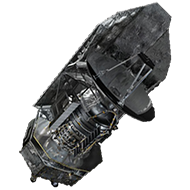May 2014 marked the 5th anniversary of the launch of the Herschel Space Observatory. To mark the occasion, this month’s astronomy instalment of Pythagoras’ Trousers included interviews with a few people of the Herschel team about their experiences. The interviews all took place in Paris, where many members of the mission and instrument teams were …
Category archives: Mission News
Royal Astronomical Society recognition for SPIRE instrument
The Royal Astronomy Society (RAS) has awarded its 2014 Group Achievement Award to the team behind the Herschel Space Observatory’s SPIRE instrument. The award represents recognition by the astronomical community of the outstanding success of the SPIRE instrument, which observed the Universe at far infrared wavelengths, a few hundred times longer than the wavelengths of …
Continue reading “Royal Astronomical Society recognition for SPIRE instrument”
SPIRE instrument wins Sir Arthur Clarke award
The team behind Herschel’s SPIRE instrument has been awarded the 2013 Sir Arthur Clarke Award for academic study and research. SPIRE is one of three instruments on Herschel, which was launched on 14 May 2009 and operated until the end of its scientific mission on 29 April 2013. The award is in recognition of the scientific achievements of the SPIRE instrument, …
Continue reading “SPIRE instrument wins Sir Arthur Clarke award”
Herschel Spacecraft is turned off
At 12:25 GMT the Herschel spacecraft was turned off for the last time, ending the operational phase of the mission. The scientific observations had ended on 29th April when the on-board supply of liquid helium was exhausted. But while the spacecraft is no longer operating, there is much work left to do on the data …
Herschel loses its cool
The Herschel Space Observatory has exhausted its supply of liquid helium coolant, after three and a half years of scientific observations. Using Herschel data, astronomers have already made ground-breaking discoveries about the formation and evolution of stars, galaxies and planets. But this has only scratched the surface, and there is far more still to come …
Herschel will lose its cool
In the next few weeks Herschel is expected to finish its supply of helium coolant, which keeps its pioneering instruments cold enough to produce groundbreaking science. After nearly 4 years in operation, the operational life of this remarkable satellite is nearly over. Launched in May 2009, Herschel has a 3.5m diameter mirror. This – the …
Herschel’s Final Destination: The Moon?
Update from ESA: This is the final decision taken by ESA management after a careful evaluation of the cost and benefits of such a use of the spacecraft in early 2013, when Herschel will run out of helium and the mission will come to an end. The Herschel spacecraft will instead be “parked” indefinitely in …
Herschel to observe near-Earth asteroid
On Tuesday 8th November an asteroid called “2005 YU55” will pass within 325,000 km of Earth, briefly making it closer than the Moon. With a diameter of 400m, 2005 YU55 is the largest object to come so close for many years, and so provides a unique opportunity to observe such an object. Herschel will be …
Matt Griffin awarded RAS medal
The Royal Astronomical Society has awarded Professor Matt Griffin, of Cardiff University and lead scientist of the SPIRE instrument on board Herschel, the Jackson-Gwilt Medal for his work on instrumentation for astronomy in the submillimetre waveband, the region of the electromagnetic spectrum between the far-infrared and microwave wavebands. Matt Griffin is one of a select group of scientists that helped …
Herschel celebrates one year of spectacular science
Herschel is celebrating one year of spectacular science. Today, a meeting at the Royal Astronomical Society in London is showcasing some of the latest groundbreaking research. Herschel is a far-infrared telescope, and its three scientific instruments detect light with a wavelength typically several hundred times longer than visible light that we see. Instead of seeing …
Continue reading “Herschel celebrates one year of spectacular science”
